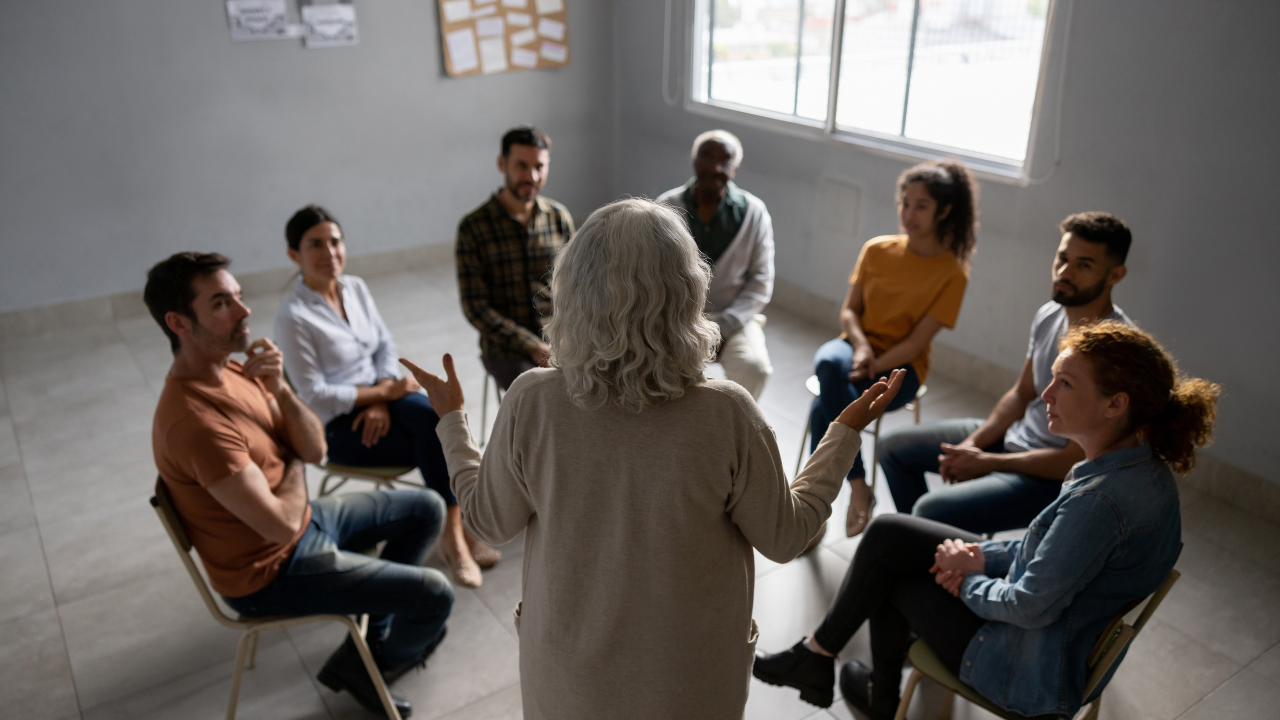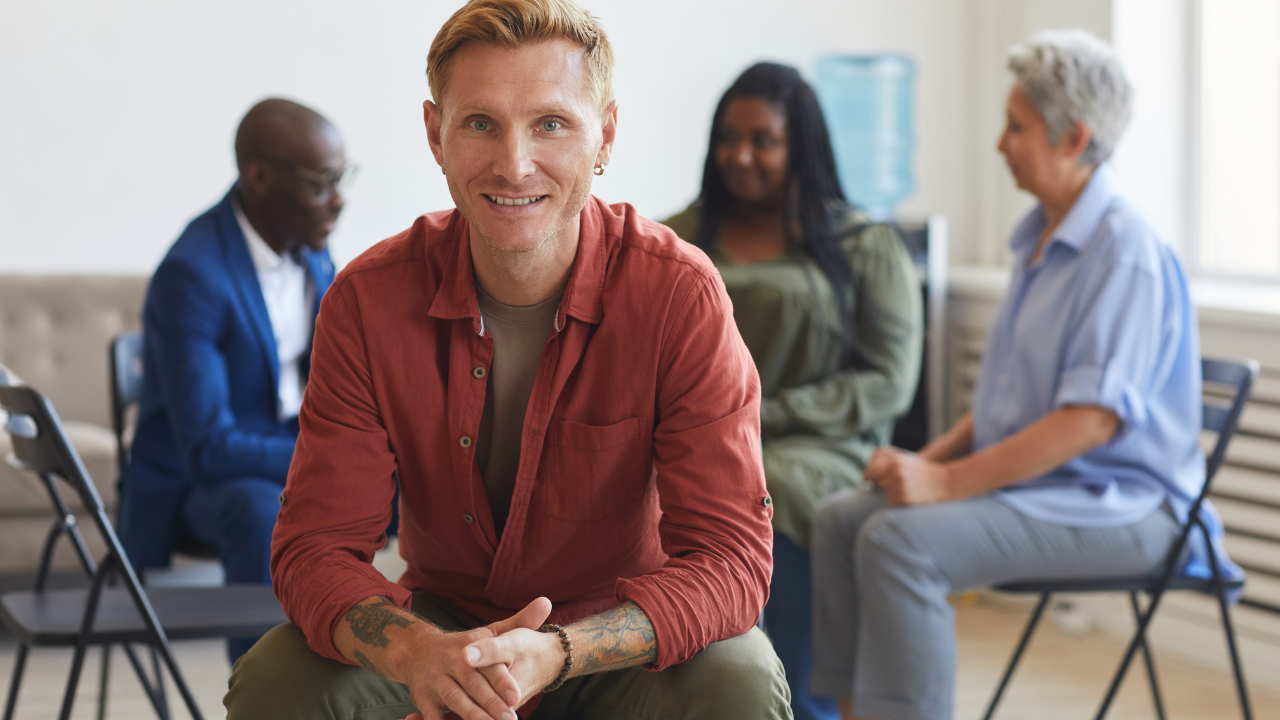7 Powerful Ways Drug Rehab Group Therapy Transforms Recovery
If you’ve ever felt isolated in your addiction, you’re not alone. Addiction thrives in secrecy, shame, and disconnection. But when you step into drug rehab group therapy, you move from isolation to connection, from silence to being heard, and from fear to hope. It can be one of the most transformative aspects of recovery. Whether you’re beginning your journey or looking for support after detox, group therapy plays a critical role in lasting sobriety.

1. Breaks the Isolation of Addiction
Addiction has a way of making you feel completely alone. Even when you’re surrounded by people, the emotional and psychological weight can be isolating. Group therapy creates a space where you meet others who truly understand what you’re going through. You realize you’re not the only one.
At Transformations Care, clients often share how hearing someone else tell their story was the lightbulb moment that sparked their own healing. These shared experiences build empathy, reduce shame, and foster deeper self-understanding.
2. Provides a Safe Space for Healing and Honesty
If you’ve been carrying secrets or avoiding parts of your story, drug rehab group therapy offers a compassionate space to open up. There’s something profoundly empowering about being genuinely heard—without judgment. In these sessions, trust builds over time, allowing you to explore your history, trauma, triggers, and hopes with people who get it.
Facilitated by licensed therapists, each group promotes structured honesty and support, incorporating feedback in a non-threatening way to promote growth. It’s a powerful balance between peer connection and professional guidance.
3. Reinforces Accountability and Motivation
Accountability is essential in every stage of recovery. It’s what keeps you grounded when things get tough. Drug rehab group therapy naturally creates this accountability through shared goals and progress tracking. You and your peers check in regularly, talk about your wins and setbacks, and encourage each other to stay on track.
This level of peer support is especially critical when transitioning from an inpatient detox program to an Intensive Outpatient Program (IOP) or Partial Hospitalization Program (PHP). Continued group connection increases the likelihood of remaining sober and engaged in treatment.
4. Teaches Essential Coping and Life Skills
Every group therapy session brings opportunities to practice new skills—from boundary-setting and emotional regulation to managing cravings and communicating effectively. Peer discussions help you see how others are applying these tools in real-life scenarios, which reinforces your learning and boosts your confidence.
Even after completing primary rehab, a strong aftercare program incorporating ongoing group sessions ensures you keep growing your toolbox and stay connected to recovery peers.
5. Encourages Emotional Resilience Through Peer Feedback
Hearing honest feedback from peers who are also on the recovery journey can help you see your blind spots. It may be uncomfortable at first, but group therapy shows you how to receive criticism without crumbling. When done right, it becomes an act of love and a powerful tool for self-awareness.
This kind of emotional resilience is difficult to cultivate in isolation. In group settings, you gain confidence by confronting difficult emotions, sharing openly, and receiving support. Therapeutic modalities like Cognitive Behavioral Therapy (CBT) and Dialectical Behavioral Therapy (DBT) are often integrated into sessions, giving structure to emotional processing and growth.

6. Builds Lasting Support Networks
One of the most beautiful elements of drug rehab group therapy is the natural community that forms. These are people walking the same path. Some might be steps ahead. Some a few behind. All are committed to a shared goal: recovery. The relationships built in group sessions often extend beyond formal therapy into ongoing friendships and sober support networks.
Whether you’re in a traditional outpatient program or transitioning from a residential setting, staying engaged in group therapy can prevent relapse by maintaining meaningful connection. Many clients at Transformations Care continue peer-led meetings long after treatment ends, which keeps them focused and inspired.
7. Helps You Find Your Identity Beyond Addiction
Recovery is more than just not using substances—it’s about rediscovering who you are. In drug rehab group therapy, you’ll reflect on your values, achievements, fears, and dreams. Hearing others navigate this identity shift can help you make your own breakthroughs.
You may explore creative expression, trauma recovery, family dynamics, and spirituality—topics that help you reimagine a new life rooted in purpose. From prescription drug addiction recovery to alcohol addiction treatment, identity exploration is central to long-term success.
Who Benefits Most from Group Therapy?
- Those transitioning from detox to outpatient or PHP levels of care
- Clients working through trauma alongside addiction
- People with co-occurring disorders (addiction + mental health)
- Anyone seeking relatable, long-term peer support
If you’re enrolled in a mental health outpatient program or a mental health PHP, group therapy helps you integrate these therapies with substance use recovery.
What Happens in a Typical Drug Rehab Group Therapy Session?
Sessions typically last one to two hours and include 6–12 participants, led by a trained therapist. The structure often involves:
- Check-ins for emotional and sobriety status
- Topic-centered discussions (e.g., triggers, forgiveness, relapse prevention)
- Therapeutic exercises (e.g., roleplay, mindfulness, journaling)
- Peer feedback and goal setting
Depending on your program, you may attend several sessions per week. Facilities like Transformations Care integrate group therapy into every phase of treatment, from drug addiction recovery to heroin rehab, offering a comprehensive approach.

Key Takeaways
- Drug rehab group therapy breaks isolation and fosters connection
- It creates a safe space for vulnerability, healing, and personal growth
- Accountability and peer support dramatically improve recovery outcomes
- You’ll learn essential life skills that translate into real-world success
- Emotional resilience is sharpened through structured group dialogue
- Lasting relationships and camaraderie are built throughout treatment
- Rediscovering your identity is a key outcome of participating in group therapy
FAQ: Drug Rehab Group Therapy
Is group therapy effective for all types of addiction?
Yes, group therapy is effective for a wide range of addictions, including opioids, meth, alcohol, and prescription drugs. Whether you’re in meth rehab, methadone treatment, or something else, group support increases the chances of sustained recovery.
Can I combine group therapy with individual counseling?
Absolutely. Most comprehensive centers recommend a combination of both. This dual approach allows you to work on private issues while also gaining insight and support from peers.
Are group therapy sessions confidential?
Yes. Group therapy sessions are bound by confidentiality agreements. All participants are expected to respect the privacy and stories shared within the group.
What if I’m shy or uncomfortable sharing?
It’s normal to feel that way in the beginning. Group therapists help create a non-threatening environment so you can ease into sharing. Many find that just listening at first is helpful before participating fully.
How long should I participate in group therapy?
This depends on your treatment plan, but many people benefit from ongoing group therapy even after structured rehab. Continued support through AA, NA, or outpatient care keeps you plugged into the recovery community.
Find Your Healing in Community
You don’t have to carry the weight of addiction alone. Through drug rehab group therapy, you’ll find mirrors, mentors, and fellow warriors all walking alongside you. Whether you’re ready for opioid treatment, suboxone therapy, or another form of recovery, group therapy can make the journey more meaningful—and successful.
Let the healing begin in connection. Your new story starts now.




















